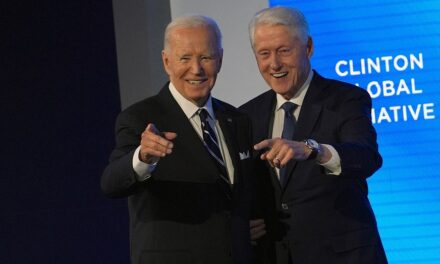David Mamet, the renowned filmmaker and playwright, has always stirred the pot with his sharp dialogues and intense narratives. His works have garnered considerable acclaim, making him a notable figure in Hollywood. However, recently, he captivated audiences not just with his cinematic insights but also with his contemplation on his political alignment, revealing why he feels he has been ‘kicked out of the left.’
Mamet’s evolution from a vocal supporter of leftist politics to a critic of these very ideologies has piqued the interest of many. Known for his poignant writing and unique storytelling style, Mamet has delivered iconic pieces such as “Glengarry Glen Ross” and “American Buffalo.” However, in a rapid political landscape, he now finds himself discontent with the direction of the left, feeling alienated from a community he once embraced.
In his recent reflections, Mamet outlines that his departure began as he observed a shift in the left’s core values. He states that he witnessed a move away from intellectual discussion and discourse towards what he perceives as a more dogmatic approach. This transition, which he describes as a retreat from meaningful debates, has left him feeling ostracized.
Mamet asserts that he initially identified closely with the liberalism of his earlier years. For many, liberal ideals symbolize advocacy for civil rights, social justice, and personal freedoms. Mamet stood firmly alongside these values, engaging in vibrant discussions that involved respectful disagreements. Yet, he has expressed disillusionment with what he deems a failure of the left to uphold its foundational belief in an open, diverse dialogue.
One of the cornerstone issues Mamet highlights is the impact of political correctness on free expression. He argues that this heightened sensitivity around speech and thought has led to a chilling effect in creative fields, particularly in Hollywood, where the fear of backlash often stifles creativity. He recalls encounters where he felt constrained in his work because of prevailing liberal ideologies that sought to limit or dictate the boundaries of acceptable storytelling.
Moreover, in his critique, Mamet elaborates on how the left’s current attitudes towards dissent have evolved, stating that those who challenge mainstream liberal views often face extreme backlash, even to the point of social ostracism. He argues that instead of fostering a culture where differing opinions could coexist and thrive, an atmosphere has been cultivated that punishes those who stray from the party line.
This shift has compelled Mamet to articulate his frustrations openly, leading him to make strong statements regarding his political beliefs and leaving many of his fans – particularly those on the left – taken aback. He argues that the essence of artistic expression is rooted in the freedom to explore diverse perspectives, and he is concerned that the current climate inhibits this essential component of creativity.
Additionally, Mamet has explored the ongoing cultural wars, emphasizing how they have played a significant role in the ideological rift he perceives within the left. He suggests that as the focus has increasingly shifted toward identity politics and social justice issues, many traditional liberal voices have become submerged or even silenced. This environment, according to Mamet, has not only marginalized dissenting opinions but has also led to the erosion of the very principles that once defined liberalism.
His observations bring to light a broader conversation about freedom of speech in the arts and entertainment industries. Mamet candidly discusses the discomfort many artists feel when expressing views that diverge from the prevailing sentiments, suggesting that the pressure to conform stifles innovation and authenticity. He believes that creative individuals should be free to tackle politically charged topics without the fear of retribution from their peers or the public.
In his dialogues about Hollywood, Mamet doesn’t shy away from illustrating the climate he perceives as hostile to conservative viewpoints. He argues that this environment not only affects individual artists but ultimately shapes the narratives that emerge in mainstream cinema and television, potentially leading to a homogenized perspective that lacks genuine diversity.
Furthermore, Mamet reflects on how a similar phenomenon can be observed in audiences, who, influenced by the rigidity of the ideological culture, often gravitate towards content that reinforces their preconceived notions rather than challenging them. This inclination might not only affect box office performance but could also result in the dilution of storytelling itself, as creators tend to play safe rather than take creative risks. He emphasizes that true art should provoke thought and spark conversation, regardless of how uncomfortable the subject matter might be.
His criticisms extend beyond just the realm of politics. Mamet also acknowledges that in today’s polarized political climate, there exists a broader societal challenge where individuals encounter significant backlash for embracing divergent views. He contends that this societal shift not only stymies free speech but also breeds a lack of empathy, further deepening divides among people who should be engaged in productive discourse.
Despite his criticisms, Mamet clarifies that his intention is not to dismiss progressive ideals outright but rather to call for a return to a more open and rational ideological marketplace. He advocates for a political landscape where ideas, no matter how controversial, can be debated without fear of alienation or retribution. In his view, fostering such an environment is essential not only for artists but for society as a whole, as it encourages a better understanding of differing perspectives and can mitigate polarization.
With his characteristic forthrightness, Mamet urges fellow creatives to reclaim the space for dialogue, encouraging an environment where individuals can express ideas freely without succumbing to the pressures of conformity imposed by ideological factions. He believes that this openness is crucial in nurturing the artistic spirit and in promoting a richer and more vibrant cultural landscape.
In conclusion, David Mamet’s reflections on his estrangement from leftist politics serve as a call to action for those within the arts and beyond. Through his critique, he encourages a reevaluation of the current ideological climate that threatens the very tenets of creativity and free expression. As the conversation around political ideologies continues to evolve, his insights provide an opportunity for those across the political spectrum to reconsider the importance of open dialogue and respect for differing viewpoints.
The landscape of Hollywood and indeed the wider culture would benefit from embracing a more inclusive approach, one where ideas can clash yet coexist, reinforcing the belief that creativity flourishes best under the canopy of freedom. Whether or not Mamet’s perspective resonates across the diverse tapestry of opinions, his willingness to speak out and challenge prevailing narratives is crucial in the ongoing pursuit of artistic integrity, freedom of expression, and intellectual courage.































